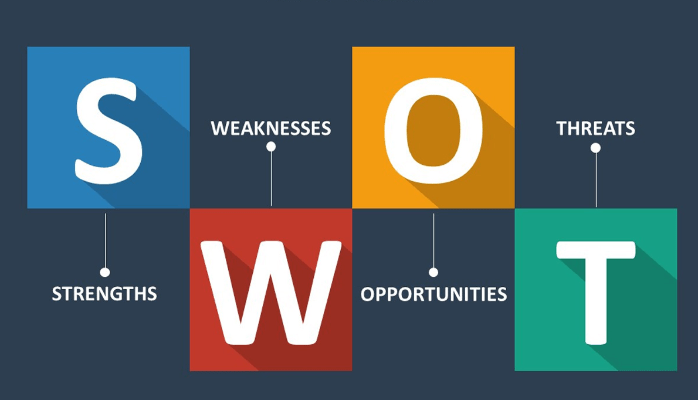Introduction
While top-level executives often receive significant attention, it is the middle managers who bridge the gap between strategic decision-making and day-to-day operations.
A McKinsey study shows that “when middle managers have clear expectations, are given targeted training, understand why their actions matter, see inspiring leaders behaving similarly, and have support systems in place (structure, role design, and rewards), they can reduce attrition, support talent acquisition, and buoy employee well-being“. Unfortunately, only 20% of respondents (in a survey) strongly agree that their organizations help them to be successful people managers.
In this featured insight, we will explore the importance of investing in middle managers and twelve key benefits it brings to organizations. We believe that by empowering and supporting middle managers, companies can enhance employee engagement, drive innovation, and improve overall performance.
The Role of Middle Managers
Middle managers are the backbone of organizations, responsible for implementing strategic objectives, managing teams, and translating high-level goals into actionable plans. They serve as a critical link between senior leaders and frontline employees, ensuring that organizational strategies are effectively executed. While they may not always receive the same level of recognition as executives, middle managers play a vital role in driving success and achieving business objectives.
"Investing in middle managers is a crucial strategy for organizations seeking long-term success"
The Importance of Developing Middle Managers
Investing in the development and support of middle managers yields numerous benefits for organizations. By providing them with the necessary tools, resources, and training, companies can empower their middle managers to excel in their roles. This, in turn, has a positive impact on various aspects of the organization, including employee engagement, innovation, performance, and overall productivity.
Enhancing Employee Engagement
Middle managers have a direct influence on employee engagement. They are responsible for creating a positive work environment, fostering strong relationships with their teams, and providing the support and guidance needed for individuals to thrive. When middle managers are well-developed and equipped with effective leadership skills, they can inspire and motivate employees, leading to higher levels of engagement and job satisfaction.
Driving Innovation and Creativity
Innovation and creativity are crucial for organizations to stay competitive in today’s rapidly evolving business landscape. Middle managers who are encouraged to think outside the box and empowered to make decisions can drive innovation within their teams. By promoting a culture of creativity and providing opportunities for experimentation, organizations can tap into the valuable ideas and insights of their middle managers, leading to new approaches, products, and processes.
Improving Performance and Productivity
Effective middle managers are instrumental in improving overall performance and productivity. They ensure that team members have clear goals, provide regular feedback and coaching, and remove any barriers that hinder productivity. By fostering a results-oriented culture and holding individuals accountable, middle managers create an environment where employees are motivated to perform at their best, leading to increased productivity and achievement of targets.
Developing Leadership Skills
Investing in middle managers’ development allows organizations to cultivate their leadership potential. These managers are the future leaders of the organization and play a vital role in succession planning. By providing them with leadership training, mentoring, and opportunities for growth, companies can build a pipeline of capable leaders who are well-prepared to guide the organization through future challenges and opportunities.
Building Strong Teams
Middle managers are responsible for assembling and managing teams that can collaborate effectively and achieve collective goals. Through their understanding of team dynamics, middle managers can identify the strengths and weaknesses of team members, facilitate communication, resolve conflicts, and create a cohesive and high-performing team. Investing in middle managers’ development ensures that they have the skills and knowledge to build strong and productive teams.
Fostering Effective Communication
Clear and effective communication is essential for the smooth operation of any organization. Middle managers act as communication channels, relaying information between senior leaders and frontline employees. By investing in their development, organizations can ensure that middle managers have strong communication skills, enabling them to convey messages accurately, listen actively, and promote open and transparent communication throughout the organization.
Promoting Organizational Alignment
Middle managers play a crucial role in aligning individual and team goals with the broader organizational objectives. By investing in their development, companies can ensure that middle managers have a deep understanding of the organization’s vision, mission, and strategic priorities. This alignment enables middle managers to guide their teams effectively and make decisions that are in line with the overall direction of the organization.
Supporting Change Management
Organizational change is inevitable, and middle managers are instrumental in successfully implementing and managing change initiatives. By investing in their development, companies can equip middle managers with the skills and knowledge needed to navigate change, mitigate resistance, and support employees through the transition. Well-prepared middle managers can play a vital role in ensuring that change is embraced and effectively integrated into the organization.
Encouraging Career Growth and Retention
Investing in middle managers’ development demonstrates a commitment to their professional growth and advancement. When employees see opportunities for career development within an organization, they are more likely to stay and contribute their expertise over the long term. By offering training, mentoring, and clear pathways for career progression, organizations can foster loyalty and retain talented middle managers who are essential for sustained success.
Creating a Positive Work Culture
Middle managers have a significant impact on shaping the work culture within their teams. By investing in their development, organizations can ensure that middle managers have the skills to create a positive and inclusive work environment. This includes promoting diversity and inclusion, encouraging collaboration and teamwork, and fostering a culture of trust, respect, and support. A positive work culture enhances employee satisfaction, engagement, and overall well-being.
Providing Feedback and Recognition
Middle managers are ideally positioned to provide regular feedback and recognition to their team members. By investing in their development, organizations can ensure that middle managers have the skills and confidence to deliver constructive feedback, recognize achievements, and support individual growth. When employees receive timely feedback and feel valued for their contributions, it boosts their motivation and performance.
Ensuring Accountability and Responsibility
Accountability is crucial for organizational success, and middle managers play a pivotal role in establishing a culture of accountability within their teams. By investing in their development, organizations can equip middle managers with the skills to set clear expectations, monitor performance, and hold individuals accountable for their actions. This creates a culture where employees take ownership of their responsibilities and strive for excellence.
Conclusion
Investing in middle managers is a strategic decision that pays off in numerous ways. By providing them with the necessary support, development opportunities, and empowerment, organizations can unlock their full potential and drive sustainable success. From enhancing employee engagement and driving innovation to improving performance and fostering a positive work culture, middle managers play a pivotal role in achieving organizational goals. By recognizing their importance and investing in their growth, organizations set themselves up for long-term success.
FAQs (Frequently Asked Questions)
1. Why should organizations invest in middle managers? Investing in middle managers is essential because they bridge the gap between strategic decision-making and day-to-day operations, driving success in organizations.
2. How do middle managers enhance employee engagement? Middle managers can enhance employee engagement by creating a positive work environment, fostering relationships, and providing support and guidance to their teams.
3. What role do middle managers play in driving innovation? Middle managers can drive innovation by encouraging creativity, promoting a culture of experimentation, and empowering their teams to think outside the box.
4. How can middle managers improve performance and productivity? Middle managers improve performance and productivity by setting clear goals, providing regular feedback, and fostering a results-oriented culture that motivates employees to perform at their best.
5. What are the benefits of developing middle managers’ leadership skills? Developing middle managers’ leadership skills creates a pipeline of capable leaders, ensuring smooth succession planning and guiding the organization through future challenges.
Need Help?
At Carthena Advisory, we provide training interventions that will help you achieve and exceed your growth potentials. Our training interventions have shown impressive results, with companies that invest in them experiencing a remarkable 24% increase in revenue, a noteworthy 22% boost in productivity, and a decrease in overall business costs. Check our management development and training capabilities for more information.






